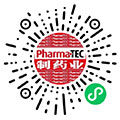你知道医药行业有哪些与AI相关的法规或指南吗?
Q
人工智能(AI)似乎无处不在。是否有针对医药和医疗器械行业的人工智能的具体规定?(Artificial intelligence (AI) seems to be everywhere. Are there specific regulations covering AI for the pharma and medical devices industries?)
答:确实有规定,然而需要注意的是,医疗保健领域的人工智能法规正在迅速演变,而具体法规可能在国家和地区之间存在很大差异。当然,目前全球还没有统一的方法来监管医疗行业的人工智能。
A:There are indeed regulations; however, it is important to note that AI regulations in healthcare are rapidly evolving, and specific regulations can vary significantly between countries and regions. There certainly isn’t yet a unified global approach to regulating AI in the healthcare industry.
虽然企业探索了许多应用AI的机会(例如,用于改善和加强供应链,以防止药物短缺),但这些技术仍处于初级阶段。这一点反映在各个监管机构发布的讨论和政策文件中。人工智能算法是由人类创造的,假设一定程度的偏见是合乎逻辑的。解决AI算法中的偏见和确保公平是这些法规的共同主题之一。避免偏倚对于确保患者安全至关重要。人工智能的一个好处是这些算法具有学习和进化的能力。当人工智能工具(例如基于人工智能的医疗设备)出现故障时,为了避免任何人将责任归咎于算法,监管机构热衷于建立明确的责任和问责框架。
Though companies explore a multitude of opportunities to apply AI (e.g., for improving and strengthening the supply chain to prevent drug shortages), these technologies are still in their infancy. That is reflected in the discussion and policy papers published by the various regulators. AI algorithms are created by humans, and it is only logical to assume some level of bias. Addressing bias and ensuring fairness in AI algorithms is one of the common themes across these regulations. Avoiding bias is essential to ensure patient safety. A benefit of AI is that these algorithms are capable of learning and evolving. To avoid anyone blaming the algorithm for when an AI tool, such as an AI-based medical device malfunctions, the regulators are keen to establish clear liability and accountability frameworks.
人工智能在医疗行业的使用总是会影响患者的健康。因此,任何人工智能的应用都必须遵循或坚持伦理原则。与传统软件在输出上保持静态不同,人工智能通常是要进化和改变的。企业可能不再能够依靠一次性的验证努力来保持AI决策过程的透明度和可解释性。
The use of AI in the healthcare industry invariably impacts patients’ wellbeing. Any application of AI must therefore follow or adhere to ethical principles. Unlike a piece of traditional software that remains static in its output, AI is often intended to evolve and change. Companies may no longer be able to rely on a one-time validation effort to maintain transparency and explainability of AI decision-making processes.
尽管监管机构不希望阻止人工智能的使用,但考虑到他们假设的对患者的好处,他们确实必须权衡风险,以保护患者安全,以及患者数据隐私和安全。所有这些关切都反映在当前的立法中。以下只是主要监管机构的少量法规、指导文件和讨论文件。
Though the regulators do not wish to prevent the use of AI, considering the assumed benefits for patients, they do have to weigh the risks to protect patient safety, as well as patient data privacy and security. All these concerns are reflected in the current legislation. The following are merely a small number of regulations, guidance documents, and discussion papers from key regulatory agencies.
世界卫生组织(WHO)于2021年发布了《人工智能健康伦理与治理》(Ethics and Governance of Artificial Intelligence for Health),阐述了人工智能在全球医疗保健中的使用[1]。大多数法规和指导文件已针对医疗设备发布[2-9]。
The World Health Organization (WHO) published Ethics and Governance of Artificial Intelligence for Health in 2021, which addresses the use of AI in healthcare globally [1]. Most of the regulations and guidance documents have been issued for medical devices [2–9].
监管事务专业人士协会已经发布了这些法规的更详细概述,但只对会员开放[10]。
A more detailed overview of these regulations has been published by the Regulatory Affairs Professionals Society, though access is for members only[10].
要获得有关特定国家或地区人工智能监管的最新和详细信息,最好咨询这些领域的监管主题专家,特别是这是一个快速发展的监管领域。
For the most current and detailed information on AI regulations in specific countries or regions, it is always advisable to consult with regulatory subject matter experts in those areas, particularly as this is such a rapidly evolving regulatory field.
参考文献
[1] WHO. Ethics and Governance of Artificial Intelligence for Health (WHO, June 28, 2021).
[2] FDA. Artificial Intelligence and Machine Learning (AI/ML)-Enabled Medical Devices. FDA.gov, updated Aug. 7, 2024 (accessed Dec. 5, 2024).
[3] FDA. Discussion Paper on Proposed Regulatory Framework for Modifications to (AI/ML)-Based Software as a Medical Device (SaMD). FDA.gov.
[4] FDA. Transparency for Machine Learning-Enabled Medical Devices: Guiding Principles. FDA.gov, June 13, 2024 (accessed Dec. 5, 2024).
[5] EC. Guidelines on the Responsible Use of Generative AI in Research Developed by the European Research Area Forum. Press Release. March 20, 2024.
[6] Future of Life Institute. The EU Artificial Intelligence Act. https://artificialintelligenceact.eu/(accessed Dec. 5, 2024).
[7] MHRA. Software and Artificial Intelligence (AI) as a Medical Device, gov.uk (accessed Dec. 5, 2024).
[8] MHRA. MHRA’s AI Regulatory Strategy Ensures Patient Safety and Industry Innovation into 2030. Press Release. April 30, 2024.
[9] The National Medical Products Administration (NMPA) (China). NMPA Announcement on Guidance for the Classification Defining of AI-Based Medical Software Products.
[10] Kulshreshtha, A.; Bharadwaj, M.S. Global Regulatory Landscape for AI/ML-enabled Medical Devices. RF Quarterly. 2024;4(3):5-20. Published online Sept. 18, 2024.
PharmTech网
邵丽竹
何发
热点文章
-
一文看懂新药研发到上市的全流程
2025-11-25
-
《药包材GMP(2025)》与药品GMP深度对比:核心差异、新增要点与实施指引
2025-11-25
-
浅谈非最终灭菌产品制剂车间无菌工艺模拟试验中的要点与设计
2025-11-18
-
制药生产标准不断提升:原料药与高活性原料药的密闭隔离解决方案
2025-11-19
-
一文掌握一条产业链:医药板块
2025-11-17
-
从"制造"到"智造",默克如何进行数字化转型?
2025-11-21
-
拜耳这波数字化操作,直接解放全自动片剂生产车间劳动力!
2025-11-18
-
基于CFD仿真技术的灌装机充氮装置设计优化
本文以某制药产线的灌装机设备为研究对象,采用计算流体动力学(CFD)仿真技术对充氮装置的充氮性能进行分析,并结合分析结果对氮幕结构进行了优化设计。随后,针对优化方案进行性能仿真验证,结果显示优化后的顶空残氧量降低至0.252%。为了进一步验证优化方案的实际效果,将优化方案应用于实际产线进行性能测试,测得的顶空残氧量为0.68%,这一结果满足了小于1%的要求,表明其充氮保护性能已达到国际先进水平。
作者:王志刚、刘依宽、刘佳鑫
-
药品密封性检测 :用户需求与优化
-
可控冻融系统在生物原液上的应用
-
人用疫苗生产数字化转型
-
药包材生产质量管理的进阶策略
-
药厂洁净区域风量和压差的控制策略













评论
加载更多